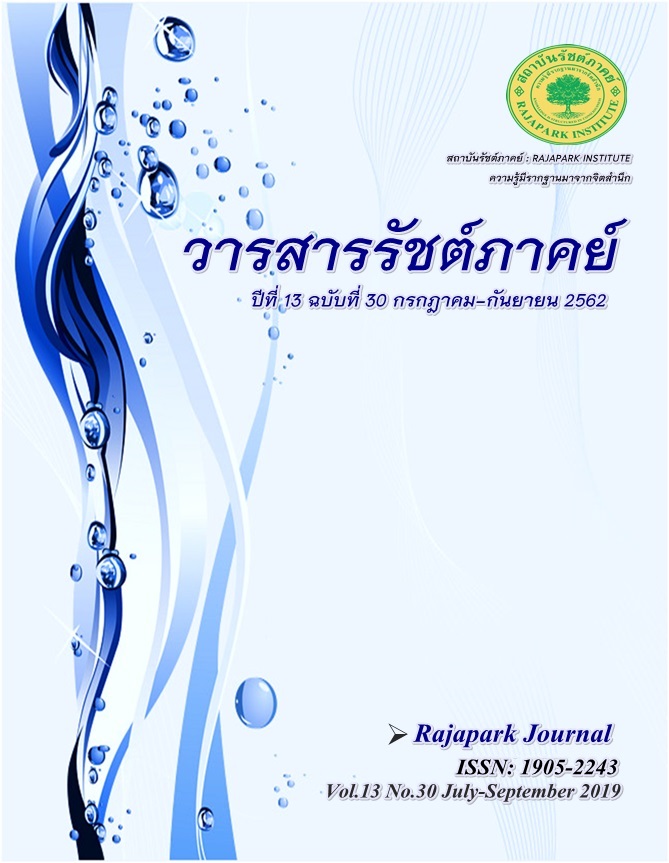Role of Expressway Authority of Thailand on Public Private Partnership for Thailand Infrastructure Development
Main Article Content
Abstract
The purpose of the study are to study the roles of the expressway and rapid Transit of Thailand and private sector in the investment of the infrastructure of the Authority, to find out appropriate role of the undertaking, and to research problems and obsearchs faced by the Authority. Via qualitative methods. Data were collected by in-depth interviews of this involved in the projects, purposively selected. It was found from the study that: (1) The Past roles of the Authority are to responsible for ground and underground transportation facility ties by ways of planning and operating them in evidence with the Act, rules and regulations and under the guidance and direction of the Minister in charge. The Authority is, in short, responsible for designing project proposal, project implementation and supervision and monitor of the projects (2) Its main roles were to set forth in the Act on state-owned enterprise, B.E. 2556; in it, the Authority has the project implementation role vid a vis monitoring and follow-up roles and role in revising the contract (4) There are 3 projects responsible by the Authority Kathu-Patong in Phuket, Rama3-Daokhanong and Stage 3 northbound. (3) As to problems and Obstacles faced by the Authority, it has be succinctly stated as follows: (1) The Authority Should be will aware of problems and Obstacles faced by it and resolve them accordingly with speed and effectiveness; (2) The reform of the authority structure should be in place; and (3) participation of the civil society in this matter is a must for the Authority in the year to come.
Article Details
Views and opinions appearing in the Journal it is the responsibility of the author of the article, and does not constitute the view and responsibility of the editorial team.
References
servants, politicians, and people. Bangkok: Chulalongkorn University.
Charoenpornpattana, S. (2008). Public Private Partnership (PPP). Retrieved June 20, 2016, from
https://chsanti.files.wordpress.com/2008/10/ppp_concept_santi.doc
Chantawanit, S. (2013). Documentary analysis in qualitative research. Bangkok: Chulalongkorn University.
Denzin, N. K. (1978). The research act: A theoretical introduction to sociological methods. New York:
McGraw-Hill.
Expressway Authority of Thailand Act B.E. 2550 (2007). The Government Gazette, 125(4a).
Kenneth, H. B., & Spencer, J. (1983). The one minutes manager. New York: Berkley Books.
Mintzberg, H. (1989). Mintzberg on Management: Inside Our Strange World of Organizations. New York: Free
Press.
State Enterprise Policy Office. (2017). Strategic State Enterprise Plan. Bangkok: State Enterprise Policy Office.
Susomboon, C. (2015). Joint investment between public and private sectors, and development of Science,
Technology and Innovation of the country. Retrieved June 20, 2016, from http://www.sti.or.th
/uploads/content
Prachyapruit, T. (2010). Comparative Public Administrations: Tools for managing and development the country.
Bangkok: Intapas.
Prachyapruit, T. (2012). Development administration. Bangkok: Chulalongkorn University.
Private Investments in State Undertakings Act B.E. 2556 (2013). The Government Gazette, 130 (31a).
Public Private Partnership Strategic Plan B.E. 2560-2564 (2017-2021). The Government Gazette, 134 (325d).
Weber, M. (1947). The Theory of Social and Economic Organizations. New York: The Free Press.

